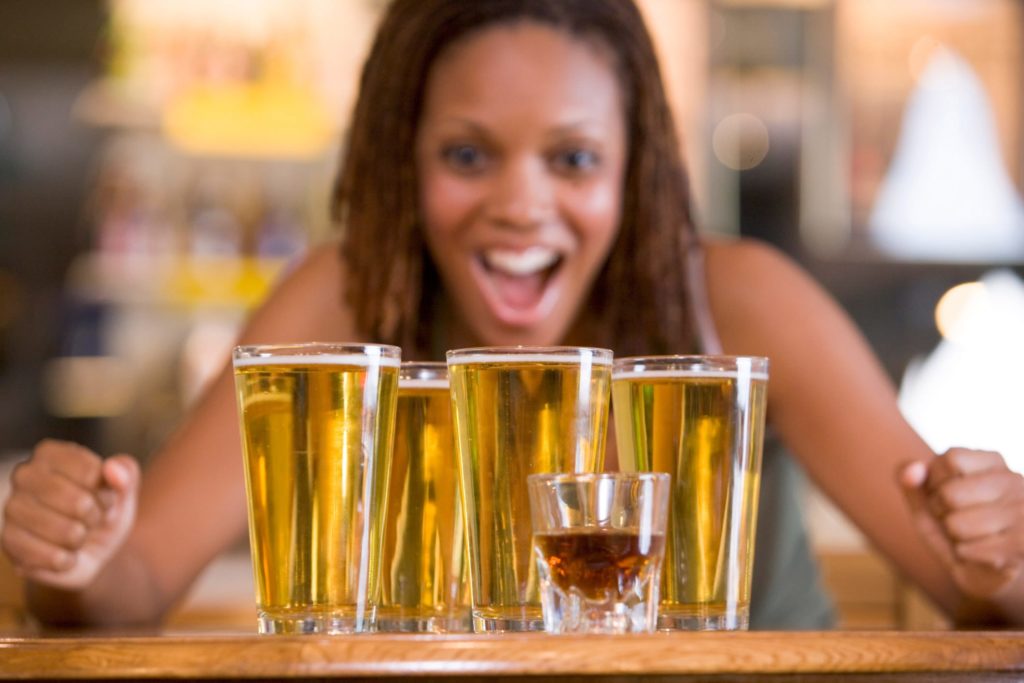Alcohol is known to impair judgment, coordination, and balance. Because of this, falling while intoxicated is incredibly common. It can also be incredibly dangerous. When under the influence, people don’t realize how traumatic their injuries might be. If somebody you know is often drinking alcohol and injuring themselves, it might be time to consider whether their alcohol consumption is healthy. At Promises Right Step, we offer comprehensive alcohol addiction treatment. Contact us today at 17135283709 to learn about the dangerous link between alcohol and falling.
Alcohol’s Effect on the Body
Alcohol can have various effects on the body, both short-term and long-term. These effects vary depending on factors such as the amount of alcohol consumed, the frequency of consumption, an individual’s age, gender, and overall health.
One of the short-term effects of alcohol is central nervous system depression. Alcohol is a depressant, which means it slows down the central nervous system. This can lead to:
- Impaired judgment and coordination
- Slurred speech
- Drowsiness and fatigue
- Altered perception and mood swings
- Memory impairment
All of these are factors in the link between falling and alcohol. It can also impair your motor skills, which increases the risks of accidents, falls, and injuries.
The long-term effects of alcohol can be very dangerous when left untreated. Some examples include:
- Liver damage
- Cardiovascular issues
- Cancer risk
- Mental health implications
- Neurological effects
- Weakened immune system
- Social and family problems
If somebody you know is drinking excessively, encourage them to seek treatment at an alcohol addiction treatment program.
Alcohol and Falling
The link between alcohol and falls is well-established. Alcohol impairs both physical and cognitive functions, which can contribute to a higher likelihood of falls and related injuries.
Impaired Balance and Coordination
Alcohol affects the central nervous system, slowing down neural communication. This can lead to impaired balance and coordination, making it more challenging to maintain stability while standing, walking, or performing activities that require fine motor skills.
Slowed Reaction Time
Alcohol can slow reaction times, making it difficult to react quickly to unexpected situations. This delayed response can lead to stumbles, trips, and falls.
Reduced Muscle Control
Alcohol affects muscle control, making it harder to maintain proper posture and muscle tone. This can result in stumbling or swaying when walking, increasing the risk of falls.
Distorted Perception of Environment
Alcohol can distort an individual’s perception of their surroundings, making them less aware of obstacles, uneven surfaces, or other hazards that could contribute to a fall.
Increased Risk-Taking Behavior
Alcohol can impair judgment and decision-making, leading individuals to take risks they wouldn’t otherwise consider. For example, someone under the influence of alcohol might attempt risky physical activities or climb to dangerous heights, increasing the risk of falling.
Alcohol and falling can also be the result of dehydration, hypotension, medication interactions, and more. It is important to be incredibly aware of your surroundings when drinking alcohol and to drink responsibly to avoid the combination of alcohol and falling. Alcohol and falling can also lead to fractures and injuries. Fractures, especially in older adults, can have severe health consequences. Individuals with a history of falling or balance issues should be especially cautious about alcohol consumption, as they may be at a higher risk of injury.
Call Our Alcohol Addiction Treatment at Promises Right Step Today
Alcohol addiction can be hard to detect. If you’re suspicious that you or a loved one might be misusing alcohol, it’s important to seek help. Contact Promises Right Step by calling 17135283709 or completing our online form. Alcohol addiction treatment can help you or a loved one break free from the cycle of alcohol misuse. A healthier, happier life is possible.






